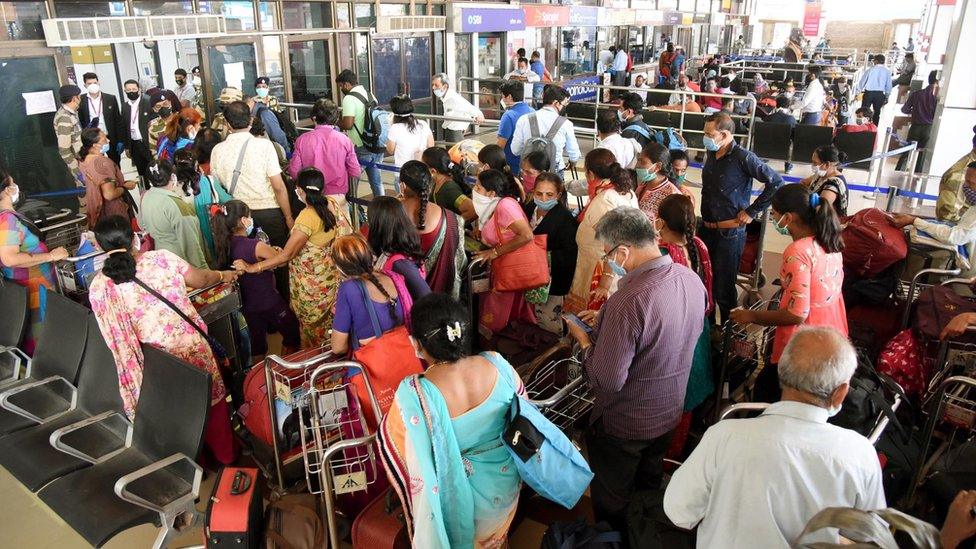Coronavirus: Rescue for Brits stuck in India 'too little, too late'
- Published
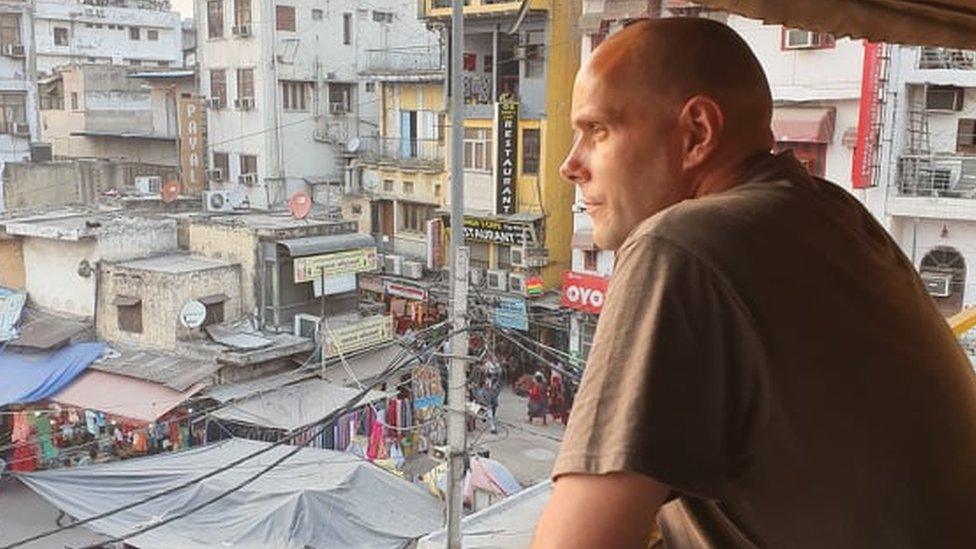
Carl Allcott said he did not understand why the UK government had not acted sooner to repatriate its citizens
British tourists trapped in India have called on the government to act quickly to bring people home.
Darren Turner, 34, and Alex Ainley, 36, travelled to northern India to take part in a four-week yoga course at the beginning of March.
They have not been able to leave the yoga school since last Saturday and Mr Turner said: "It has been a very scary time."
The Foreign Office said it was "working around the clock" to support tourists.
Mr Turner and Mr Ainley were among hundreds of UK nationals unable to leave India, which was put under a 21-day lockdown on 23 March with less than four hours' notice, in an attempt to slow the spread of coronavirus.
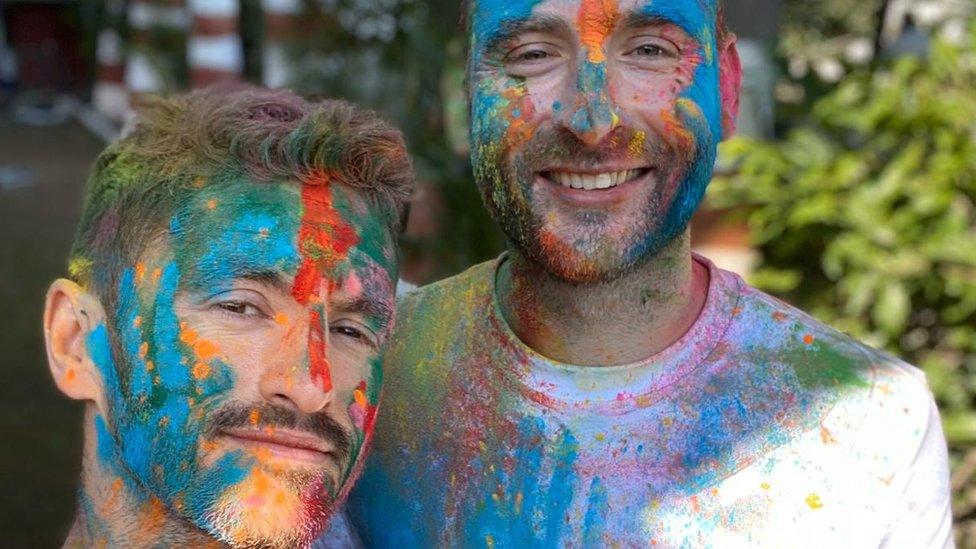
Darren Turner and Alex Ainley are trapped in a yoga school in northern India
Under the "total lockdown" measures, all non-essential businesses have been closed, leaving millions jobless and and sparking an exodus of migrant workers from major cities.
There is no register of how many British tourists are in India or abroad elsewhere but the government said globally it could be anywhere between 300,000 and one million.
On Monday, the UK government announced tens of thousands of Britons stranded abroad by the coronavirus pandemic would be flown home under a new arrangement with airlines.
Mr Turner, from Torpoint in Cornwall, said since the lockdown started the German, Ukrainian, Swiss and French students on his course had been rescued by their governments.
He said foreign secretary Dominic Raab's announcement came as a relief and felt "just in time".
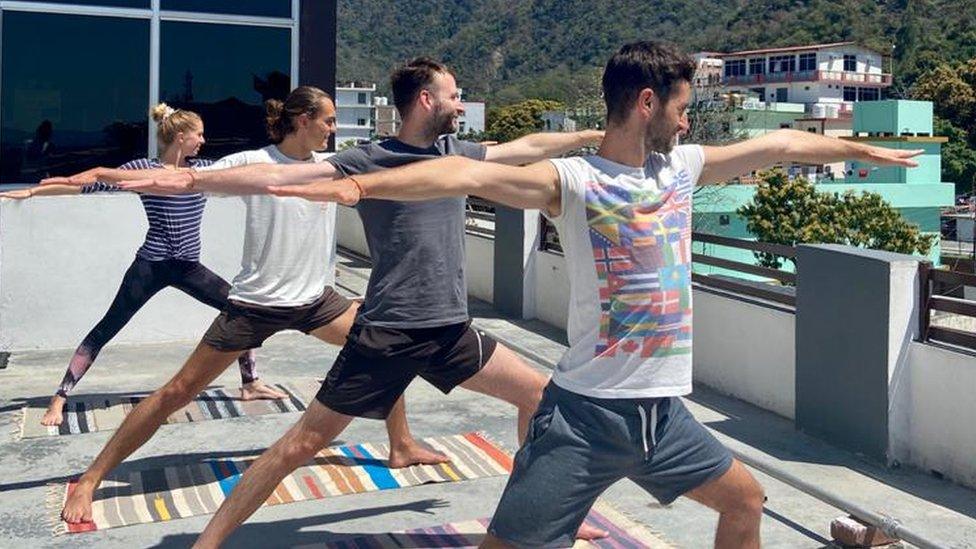
The number of students at the yoga school is dwindling as students of other nationalities are repatriated
Mr Turner, who now lives in Birmingham, said: "We were fortunate that we are in a school environment where... we have been protected from something that could be much worse. There are other people across the country whose accommodation has been withdrawn that must be scary.
"The potential of that was very frightening and because there was no communication, particularly last week on what was happening, it made a difficult situation more difficult."
Mr Turner's father Grahame, from Plymouth, said he was "massively patriotic" and would not normally criticise the government but it seemed it had been slow to respond.

'I felt ashamed to be British'
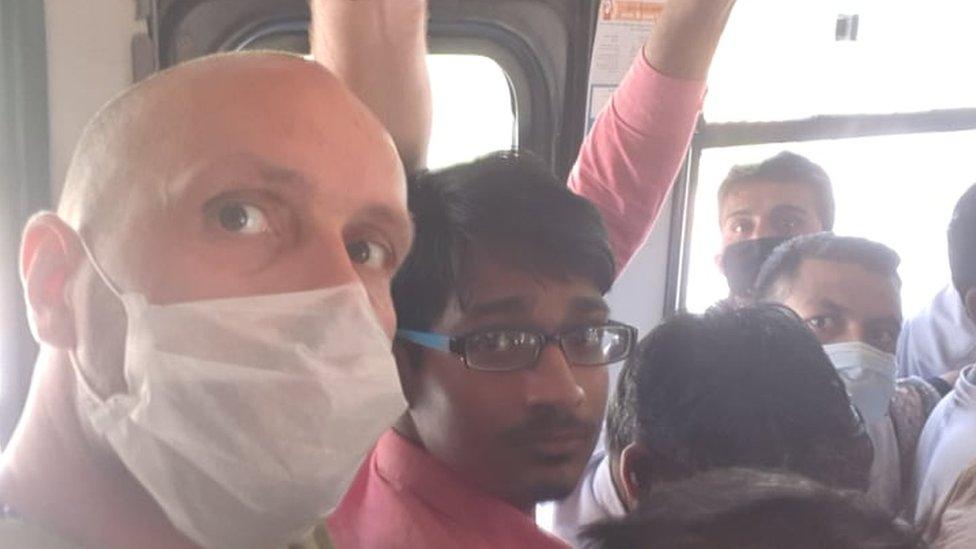
Carl Allcott said people from other countries including Croatia, Israel and Russia were being repatriated by their governments
Carl Allcott managed to leave India on a German rescue flight on Friday - despite not being German.
Mr Allcott, 43, from Evesham in Worcestershire, who had been travelling for seven months, said he was "so grateful" to Germany and did not understand why the British government had not acted sooner to help its citizens.
He said the situation in Delhi was "desperate" with more foreigners arriving in the city, having been kicked out of other parts of India.
"I was in a hostel and three middle aged British people were brought there by the police," he said.
"They were found wandering around the streets of Delhi because they had been kicked out of their town in Rajasthan but they couldn't find a hotel because hotels were shutting down.
"I met foreigners that had stones thrown at them, I met a British lady with her six-year-old daughter and somebody had come up to her and sprayed her in the face with sanitiser."
Mr Allcott said he was flown to Frankfurt on Friday after going to the German embassy, having read on Facebook that the country was repatriating people. He then flew back to London from Germany.
He said he heard about British people sleeping on the streets of Delhi and the situation made him feel ashamed to be British.

On its website, the Foreign Office was still advising British nationals in India to prepare to stay in the country until commercial flights resume, external. However an update added: "The British High Commission is working with the Indian authorities and airlines to support British nationals who want to leave India and return to the UK."
British people in India have been asked to provide information about themselves and their location.
A spokesman for the FCO said it was "working around the clock" to support travellers in this situation.
He added: "We recognise British tourists abroad are finding it difficult to return to the UK because of the unprecedented international travel and domestic restrictions that are being introduced around the world - often with very little or no notice."
Dawn Hardwick, 50, from Leamington Spa, has just returned from India with her six-year-old daughter Rosie, after six days of "hell" trying to get back and after being told to "sort herself out" when she called the British embassy.
They were put on a German rescue flight on Saturday with about 20 other British people. She has since been trying to help others who were stranded.
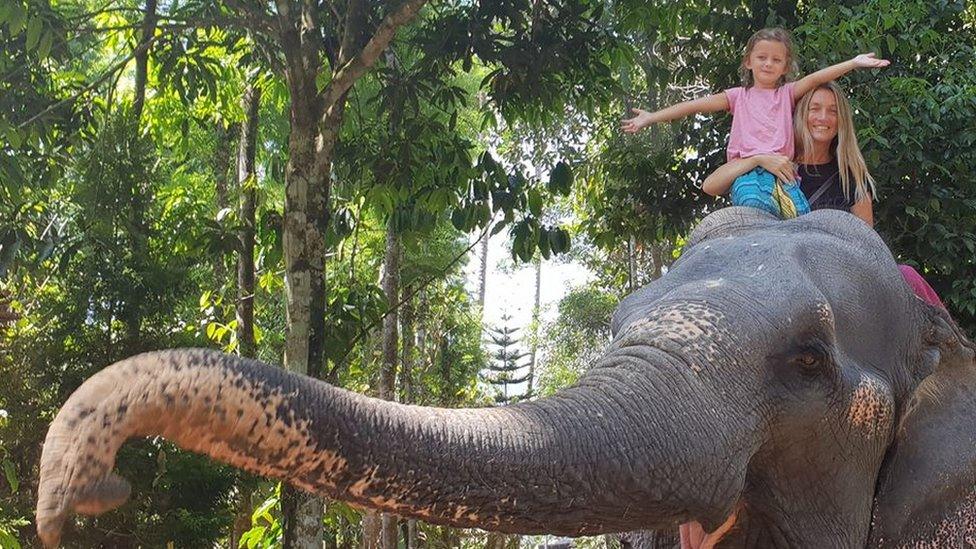
Dawn Hardwick, who escaped India on a German rescue flight, is now helping other stranded tourists in the country, which she said was not safe at the moment
Ms Hardwick, who had been in India since mid-February on a business trip, said the atmosphere in the country changed after the lockdown was announced and she and her daughter were spat at, shouted at and called "coronavirus foreigners".
"It is quite horrific," she said. "That is why I knew I had to get me and Rosie out when I did.
"I didn't feel safe at all. People are getting beaten.
"I am hearing a lot of horror stories of people with no food and no medications, people are running out of things they desperately need like asthma inhalers.
"Even now (the government) is saying 'they will be' and 'they are trying to' (arrange flights). They haven't actually done it."
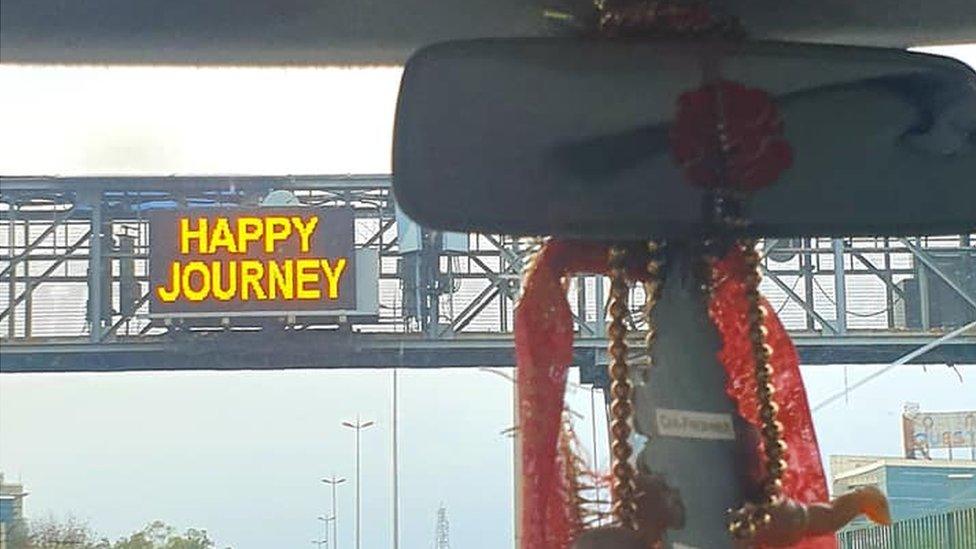
Ms Hardwick said one of their taxi drivers put his rear-view mirror up so he did not have to look at them and foreigners are considered coronavirus spreaders in the country
Ms Hardwick said people were still trying to "frantically" get out by any means.
She said many would be in a "far worse" situation by the time any British rescue flights started.
"It is too little, too late," she said. "When will it happen? These people feel incredibly helpless."

A SIMPLE GUIDE: What are the symptoms?
AVOIDING CONTACT: Should I self-isolate?
LOOK-UP TOOL: Check cases in your area
MAPS AND CHARTS: Visual guide to the outbreak

- Published30 March 2020
- Published28 March 2020
